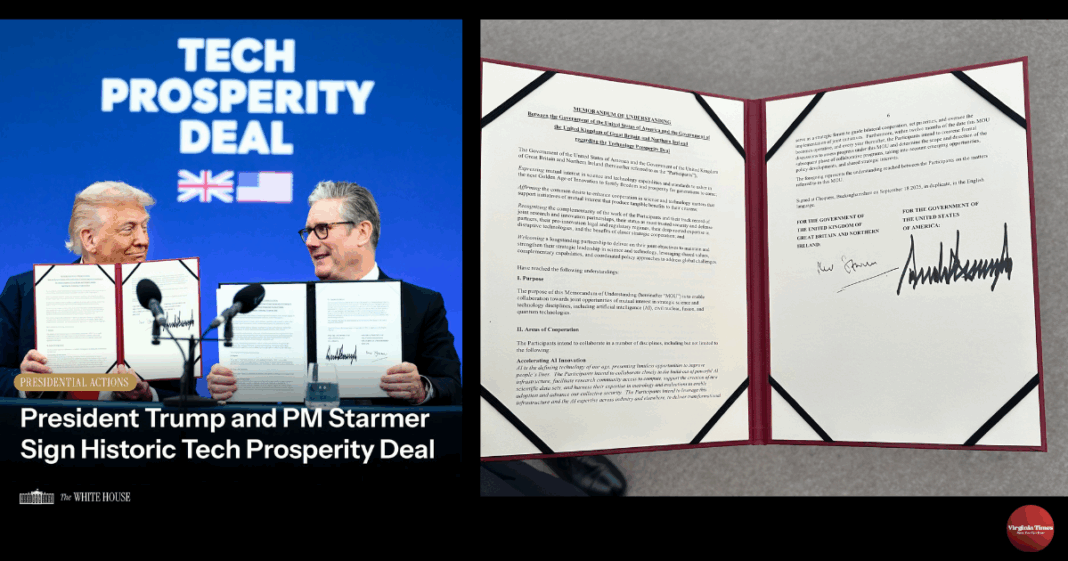President Donald J. Trump and Prime Minister Keir Starmer on Thursday signed the Technology Prosperity Deal, a transatlantic plan to coordinate research, standards and investment across strategic technologies while speeding regulatory timetables for advanced reactors and deepening quantum cooperation, according to a White House readout and the memorandum released in London.
The White House called the agreement a “landmark” for the special relationship, saying it is designed to deliver practical gains for the public by backing joint programs in health, energy and security. The deal was announced during the state visit and follows a leaders’ meeting at Chequers.
On artificial intelligence for science, the agreement links the U.S. Center for AI Standards and Innovation with the U.K.’s AI Security Institute to share best practices on measurements and model evaluations and to exchange personnel. It also establishes a flagship “AI for Science” program among U.S. energy, health and science agencies and their U.K. counterparts, with work on automated labs and new research data sets aimed at breakthroughs in cancer and chronic disease.
Civil nuclear provisions aim to accelerate domestic deployment and exports. Regulators on both sides will target advanced reactor design reviews within two years and site licensing within one year. The U.K. commits to full independence from Russian nuclear fuel by the end of 2028, aligning with U.S. policy and seeking a more secure supply of advanced fuels. The deal also coordinates fusion research and policy to help move toward commercial development.
Quantum commitments include a joint benchmarking taskforce spanning hardware, software and algorithms, and work toward trusted, interoperable standards. The two governments say tighter links among national labs, universities and industry are intended to strengthen supply chains and speed real-world uses in defense, finance and energy.
The memorandum sets a broader foundation for cooperation on research security, resilient telecommunications and precision timing systems that underpin navigation and finance, while encouraging private capital to scale critical technologies. It is not legally binding; rather, it sets intentions and follow-up steps. Within six months of the memorandum going into effect, a working group at the ministerial level will be set up, and there will be official annual evaluations to keep track of progress.
Officials said the deal was part of a long-term plan to keep both countries at the top of high-impact science. Execution will be the test in the near future: whether license timeframes hold, fuel supply networks change by 2028, and researchers can more easily get to the computing resources, data, and financing promised by the new initiatives.
A global media for the latest news, entertainment, music fashion, and more.














